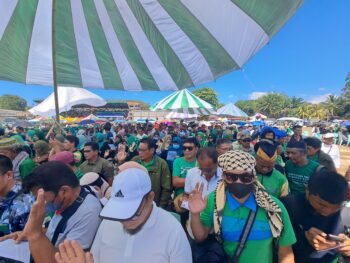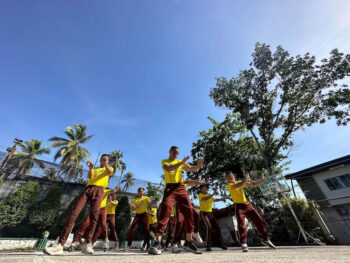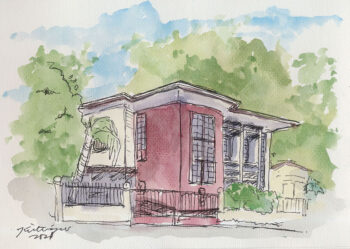GENERAL SANTOS CITY, January 26 , 2015 – What has been persistently being avoided appears now to be the ultimate solution. That can be the great paradox awaiting the Bangsamoro Basic Law. Only the Supreme Court, being avoided like land mine, can decide that the constitutionality of the Basic Law is not a matter of letter or spirit but must be of letter and spirit of the 1987 Philippine Constitution.
For Nine Months Now
For five months, from end of March to the first week of September 2014, Draft BBL had undergone “refinement”. The legal team of the Office of the President reviewed and revised it, raising strong objections from the MILF. The GPH-MILF peace panels tried to “re-negotiate” the revised provisions but eventually Executive Secretary Paquito Ochoa Jr. with the Office of the President and MILF Peace Panel Chair Mohagher Iqbal with the Bangsamoro Transition Commission that he heads had to do the final “refinement”.
The President, together with MILF Chairman Ibrahim Murad, approved the Draft as “acceptable to all” and constitutional. During a ceremonial audience with the Senate President and House Speaker in Malacanang on September 9, 2014, he transmitted the Draft to the Congress certifying it as urgent.
For more than four months since the transmittal of the Draft to the Congress, the House and the Senate have been conducting hearings in Manila and countrywide to make sure that the BBL would be constitutional and acceptable to all. As of the latest report, they figuratively are groping in the tunnel with the light still a glimmer far away. The issue on constitutionality looms bigger and the timeline for the passage of BBL is still uncertain.
The @inquirerdotnet, in its January 22, 2015 posting (House committee: Bangsamoro Basic Law will be constitutional), quoted Rep. Rufus Rodriguez, chair of the House Ad Hoc Committee on BBL as vowing, “No unconstitutional provision will be included in the Bangsamoro Basic Law. We can’t just pass the bill we believe has provisions the Supreme Court will declare unconstitutional. We’re bound to uphold the Constitution.” Senate leaders have the same pledge.
That essentially was what the President had wanted in “refining” the Draft BBL for five months – to submit a bill that the Congress would find without constitutional infirmities and easy to pass. How much more time will the Congress need to completely clean the bill of all unconstitutionalities and unacceptabilities? Will the BBL once signed as a Republic Act satisfy all that it will not be questioned in the Supreme Court?
If the assurance of the President turned out to be “no guarantee”, will the pledge of the leaders of the Congress be otherwise?
Why do the leaders of the Congress not come to term with reality to save precious time? Like the peace negotiators, the BBL drafters and the Office of the President, the Senate and the House will find their best efforts not absolute guarantee.
Only the Supreme Court is the final arbiter of constitutionality; only the people are the final determiners of acceptability. With their best efforts, the Congress should pass the BBL before it adjourns on March 19. Let the Supreme Court rule on the constitutionality of BBL if asked to. Let the people determine its acceptability in the ensuing plebiscite.
Consider This
By the letter of the 1987 Constitution, many provisions of Draft BBL are correctly questioned as unconstitutional. However, the spirit is being invoked to justify the claim to constitutionality. Like Sen. Miriam Defensor-Santiago, the adherents of the letter are challenging the advocates of the spirit to change their mind. But the sticking point is: Your position is as good as ours.
Only the Supreme Court can arbitrate and put the quarrel to rest. The case of Paragraph 2, Section 18 of Article X of the 1987 Constitution has set the precedent. The paragraph states: “The creation of the autonomous region shall be effective when approved by majority of the votes cast by the constituent units in the plebiscite called for the purpose, provided that only provinces, cities and geographical areas voting favorably in such plebiscite shall be included in the autonomous region.” (Bold types ours)
By the letter of Paragraph 2, there are two conditions in the creation of the autonomous region: First, the required majority of the provinces and cities composing the region voting “YES” — no majority, no autonomous region. Second, only the provinces and cities voting “YES” would form the autonomous region.
In the case of Muslim Mindanao, while Section 18 did not identify the constituent units of the proposed Autonomous Region in Muslim Mindanao, they were as provided in Part II of the 1976 Tripoli Agreement – 13 provinces and nine cities. Section 1(2) of Article II of RA 6734, the original Organic Act of the ARMM, named them as listed in the Tripoli Agreement. At least twelve of the 22 provinces and cities voting “YES” were needed to create the ARMM.
The Congress modified Paragraph 2, providing in Section 1(1), Article II of RA 6734: “There is hereby created the Autonomous Region in Muslim Mindanao, to be composed of provinces and cities voting favorably in the plebiscite called for the purpose, in accordance with Section 18, Article X of the Constitution.” (Bold type ours) Adopted in Section 1(1) was the “provided-clause” of Paragraph 2.
Had the letter of Paragraph 2 been strictly followed there could have been no ARMM; only four provinces voted “YES” in the plebiscite. But the drafters of RA 6734 – the Mindanao Regional Consultative Commission – must have foreseen the NO-Vote of the predominantly Christian provinces and cities. Yet, in spirit emanating from the 1976 Tripoli Agreement, Paragraph 2 mandates the creation of the ARMM.
The Supreme Court sustained Section 1(1) when the creation of the ARMM composed of Maguindanao, Lanao del Sur, Sulu and Tawi-Tawi was questioned before it – thereby, reconciling the letter to the spirit.
The Same High Walls
When the Congress resumed its regular session last January 19, it was still facing the same high walls blocking the BBL by the end of 2014: first, the shrinking timeline and changing targets to pass the BBL; second, the daunting constitutional and legal issues. Media reports show more questions than answers.
Of the first: Before 2014 ended, the House leaders had changed thrice their deadlines to pass the BBL – December 17, 2014 to February 27, 2015 then to end of March 2015. The Senate leaders had not committed to any specific deadline. They still appear rattled.
Item 1: In The Philippine Star January 22, 2015 report, (‘No need to remind Noy’s allies on BBL passage’ ), Malacañang is still pressuring the Congress to pass the proposed BBL within the first quarter of this year but it will not remind the President’s allies to do so. Speaker Feliciano Belmonte Jr. and Senate President Franklin Drilon had assured the President of the BBL’s passage at the soonest time possible.
Item 2: The Manila Standard Today January 14, 2015 report, (No deadline to pass BBL in Congress), said the House the leadership of the House of Representatives has yet to decide on the deadline for the passage of the proposed Bangsamoro Basic Law quoting Speaker Feliciano Belmonte, Jr., “I’m not yet sure if we can pass it before the break,” referring to the March 19 recess of Congress. Rodriguez targets the end of February for submission of the AHCBBL report to the plenary session hoping the BBL can be passed by March 30.
Item 3: The Daily Tribune last January 21 reported Marcos as saying that BBL may miss Palace deadline because of contentious issues regarding its constitutionality despite the assurance by Senate President Franklin Drilon to pass the BBL by March 18, 2015.
Of the second: By the end of 2014, Marcos had enumerated seven contentious issues on the constitutionality and legality of the BBL that had emerged during the Senate hearings. Rodriguez said ten constitutional issues had been raised during the AHCBBL hearings topped by Bangsamoro as a substate. These are still unresolved.
Item 4: AHCBBL chair Rodriguez, pledged last January 22 that “No unconstitutional provision will be included in the Bangsamoro Basic Law” as posted in @inquirerdotnet of the same date. Yet, earlier on January 14, The Manila Standard Today reported him revealing that “the ‘conflicting and execrable’ provisions of the BBL included those on national defense and security, police, foreign relations, revenue or wealth sharing, justice system and the legislature”. He admitted there are sufficient grounds to question them.
Item 5: The Senate committee on constitutional amendments will hold public hearings on January 26 and February 2; the committees on local government and on justice and unification will have two more hearings in Jolo on February 4 and in Zamboanga City on February 5. Expect more constitutional issues to be raised.
Item 6: Last January 9, fourteen living members of the 1987 Constitutional Commission came out with a paper expounding the intent and core principle — the spirit — of the 1987 Constitution in support of the creation of the Bangsamoro.
Item 7: Late last week, the Catholic Bishops Conference of the Philippines, citing its just concluded study to be submitted to the Congress, warned that the passage of the BBL “cannot be at the expense of the integrity of Philippine territory…” implying its rejection of the Bangsamoro as a substate..
Item 8: The Luwaran January 24, 2015 report, “Iqbal calls for statesmanship of Congress on issues of constitutionality of the draft BBL”, indicates how Draft BBL is still stuck. Iqbal attended the 36th and last hearing of the House Ad Hoc Committee last Wednesday with governors and city mayors from Muslim Mindanao. Among the contentious issues, Iqbal clarified for the nth time the question of “territorial waters”. AHCBBL Chair Rodriguez said February 9 is the target for the voting on the final committee report. (See: Item 2 above.)
No Better Option
Like the Office of the President and the Bangsamoro Transition Commission, the House and the Senate can only do their best to make the BBL adhere to the 1987 Constitution and be acceptable to all. But they cannot resolve with finality constitutional questions or determine acceptability. The constitutional mandate for the first belongs to the Supreme Court; for the second, to the people in a plebiscite.
The BBL can be passed and signed by the President by March 18 if HB 4994 is passed by the second week of February, SB 2408 by the end of February and the two versions reconciled by the Bicameral Conference Committee in the first week of March. With the President exhorting, there will be enough votes to pass both bills after serious debates in the plenary sessions.
Two scenarios can happen. The first is to be prayed for – the BBL Act is not questioned at the Supreme Court, the President signs it by the end of March, and the Bangsamoro electorate ratify in in July. The second is to be expected. The BBL Act is brought before the Court, its signing and the ratification suspended until the case is decided, perhaps in three months like in the case of the Memorandum of Agreement on Ancestral Domain.
The Congress must include fallback provisions to ensure that the Bangsamoro comes true come what may. What may these fallback provisions be?
[1] Provide that the provisions the Court finds unconstitutional or illegal will not render the entire Act unconstitutional. These will be revised as the Court may rule or direct. By this, the Court will primarily render a judicial review, not necessarily to declare the Act constitutional or unconstitutional.
Should this happen, the Congress can probably revise the unconstitutional or illegal provisions and have the Act signed in or before December with all constitutional and legal questions having been put to rest. The BBL may be ratified simultaneously with the May 2016 presidential election.
True to Senator Santiago’s interpretation of “Government”, the BBL will be the product of the shared labor of the three Branches – Executive, Legislative and Judiciary.
[2] To address the question of short transition raised in both the AHCBBL and Senate hearings as revealed by Marcos and Rodriguez, provide that the Bangsamoro will be established right after the ratification of the BBL to be run by the Bangsamoro Transition Authority until the election of the regular officials in 2019.
Reflecting on the MILF appeal to the Congress for statesmanship (See: Item 8 above), the two suggested fallback provisions will be a test of statesmanship not only for the members of the Congress but also for the President. He should yield the imperative of electing the Bangsamoro regular officials in May 2016 to the better option of assuring the stability of the Bangsamoro.
But the statesmanship of the MILF will also be on test. They must accept the BBL as judicially reviewed by the Supreme Court. Once the Bangsamoro is established and stabilized, the Moros can work from the inside to realize their unrealized aspirations.
However, the Moros have history for their comfort. Following the precedent in the case of Paragraph 2, Section 18, Article X of the 1987 Constitution as revised by the Congress in Section 1(1), Article II of RA 6734, the Supreme Court will most likely reconcile the letter to the spirit of the Constitution in its judicial review of the BBL Act. (Comment” is Mr. Patricio P. Diaz’ column for MindaViews, the opinion section of MindaNews. The Titus Brandsma Media Awards honored Mr. Diaz with a “Lifetime Achievement Award” for his “commitment to education and public information to Mindanawons as Journalist, Educator and Peace Advocate.” You can reach him at patponcediaz@yahoo.com.)







